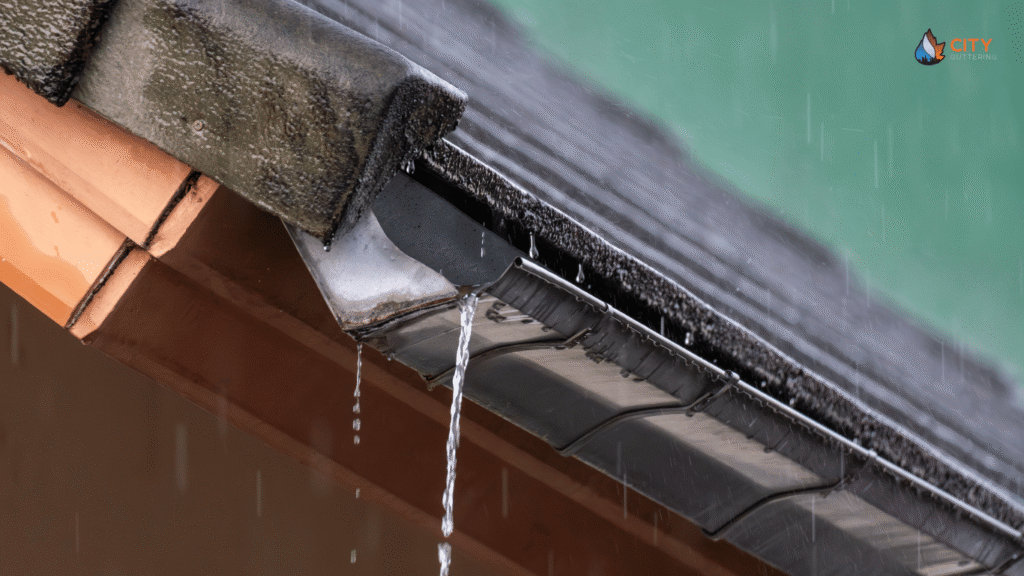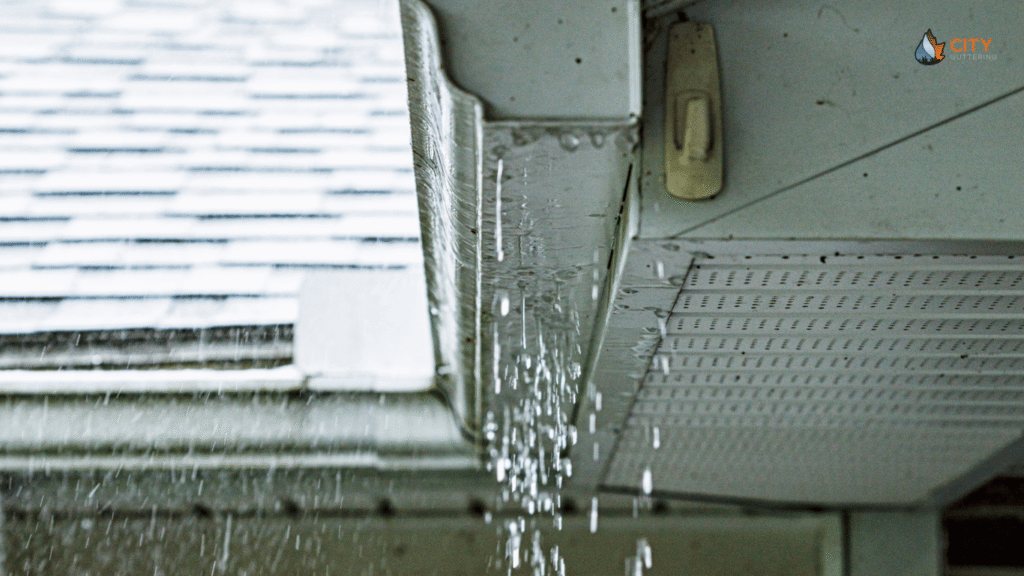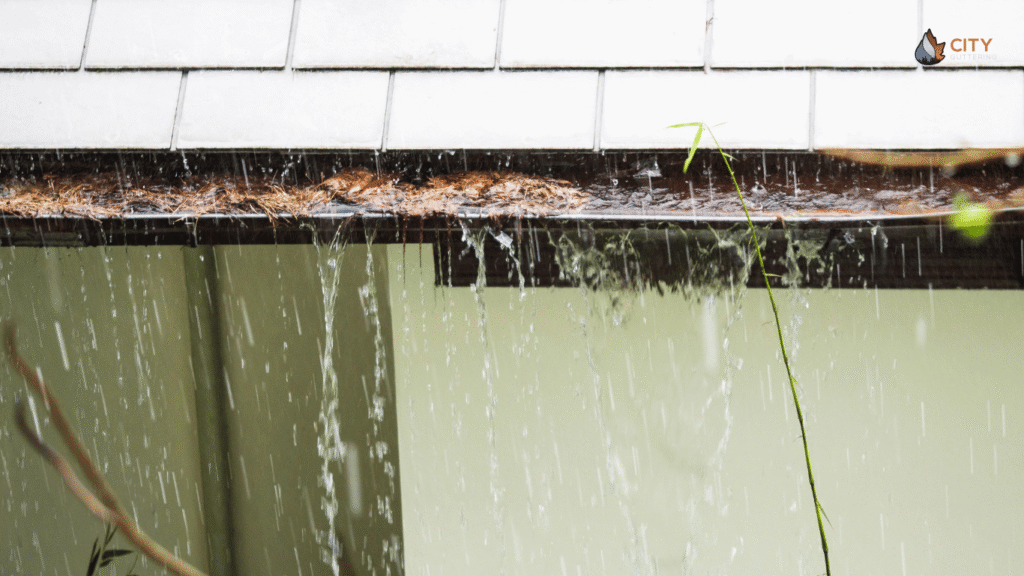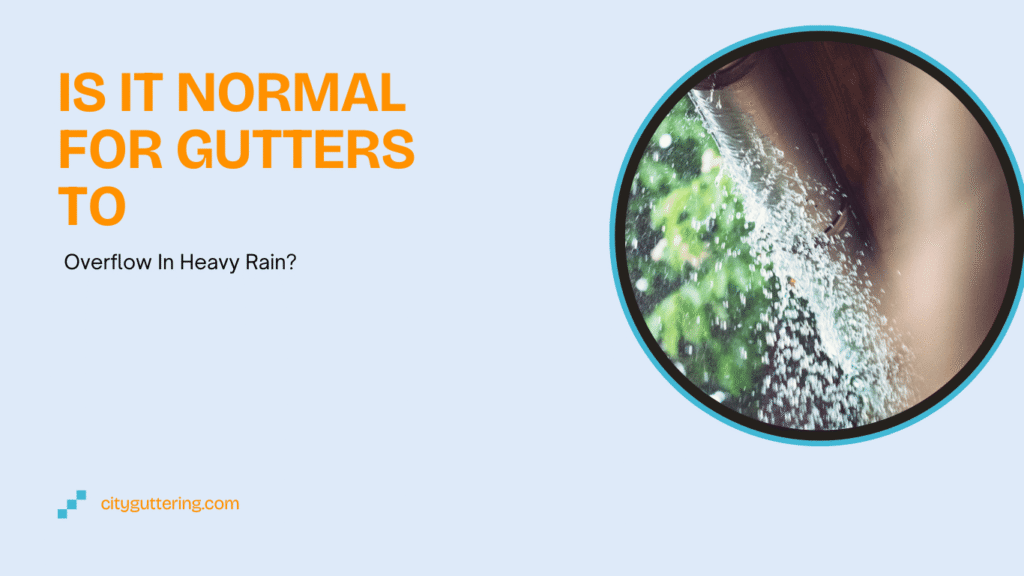A well-functioning gutter system is like a silent protector of your home. You rarely think about it until it fails. During heavy rain, you might notice water gushing over the sides, soaking walls and pathways.
Is that just nature being unpredictable, or is your gutter system struggling? By the end of this article, you’ll know the difference between occasional overflow that can be overlooked and persistent issues that need professional help.
Is It Normal for Gutters to Overflow in Heavy Rain?
Heavy rain can overwhelm almost any drainage system from time to time. If gutters spill water during an unusually intense downpour but return to normal once the storm passes, it may not be a major concern.
But here’s the important distinction: if your gutters overflow during regular rainfall or every time it rains, that’s not normal. It usually signals a problem such as blockages, undersized gutters, or damage in the system. Left untreated, it can cause structural and cosmetic damage to your property.
Common Causes of Gutter Overflow
Understanding the reasons behind gutter overflow is key to fixing the problem. Here are the most common causes:
Blocked Gutters and Downpipes
- Leaves, twigs, and moss accumulate over time, clogging gutters.
- Water cannot drain properly, so it spills over the edge.
- Downpipes are equally vulnerable to hidden blockages that stop water flow.
Undersized or Poorly Installed Gutters
- Gutters that are too small cannot handle the volume of rainwater.
- Incorrect slope or poor installation prevents water from moving efficiently.
- Overflow is inevitable in such cases, no matter how clean the gutters are.
Heavy Rain and Storm Conditions
- Sudden cloudbursts or storms create more water than your system can handle.
- Even clean and well-installed gutters may briefly overflow in such conditions.
- If it only happens occasionally, this is less of a concern.

Damaged or Worn Gutter Systems
- Cracks, rust, or sagging sections prevent water from flowing smoothly.
- Leaks form at joints, adding to the overflow.
- Older systems are particularly prone to these issues.
Why Overflowing Gutters Shouldn’t Be Ignored
Overflowing gutters are more than just a nuisance. They can quickly lead to costly damage:
- Water Damage to Walls and Rooflines – Overflowing water can soak walls, fascia boards, and roof edges, causing decay.
- Foundation Problems – Constant pooling around the base of your home can weaken the structure over time.
- Damp and Mould Growth – Indoor damp patches lead to mould, which affects both health and property value.
- Pest Issues – Standing water attracts mosquitoes and other unwanted pests.
Ignoring these problems often means bigger repair bills later.
Signs Your Gutters Need Attention
You don’t always need a storm to spot problems. Watch out for these signs that your gutters are struggling:
- Water spilling over during light rainfall.
- Dark streaks or staining on exterior walls.
- Pools of water forming at the foundation.
- Sagging gutters that look heavy or out of line.
- Plants, moss, or even weeds sprouting from the gutter line.
Spotting these early can save you from larger problems down the road.

What To Do If Your Gutters Overflow
Overflow doesn’t always mean replacement is required. Here are practical steps to take:
Quick DIY Checks
- Inspect gutters safely after rainfall for visible debris.
- Scoop out leaves, moss, or twigs if you can do so without risk.
- Run water through downpipes with a hose to check for blockages.
Professional Solutions
If the problem persists, calling a professional is the safest option. Common services include:
- Gutter Cleaning – Removing dirt and debris for free-flowing gutters.
- Repairs – Sealing leaks, realigning sections, and fixing cracks.
- Replacement – Installing new gutters if your current system is undersized or beyond repair.
How City Guttering London Can Help
At City Guttering London, we understand how frustrating gutter problems can be. With over 200 five-star reviews, our team is trusted across London and Surrey for professional, reliable service.
Here’s why homeowners and businesses choose us:
- Expert Cleaning to keep gutters clear of blockages.
- Repair Services for leaks, sagging, or broken joints.
- Full Replacements when a new system is needed.
- Emergency Callouts for urgent problems during heavy rain.
- Instant Telephone Inspections for fast advice.
- Free Quotes Within 45 Minutes, ensuring quick and transparent pricing.
We proudly serve South London, South West London, Central London, Surrey, and Hampshire.
Preventing Future Gutter Overflow
Prevention is the best way to keep your gutters working year-round. Simple steps can make a big difference:
- Clean gutters at least twice a year, ideally in spring and autumn.
- Consider gutter guards to reduce blockages from leaves and debris.
- Keep trees trimmed to prevent branches and leaves from dropping in.
- Arrange regular inspections, especially before the rainy season.
By maintaining your gutters, you reduce the risk of overflow and protect your home from water damage.

Conclusion
So, is it normal for gutters to overflow in heavy rain? A brief overflow during an extreme downpour can be, but regular overflow is a clear sign of trouble. From blockages to damaged systems, the causes are often straightforward but the consequences can be costly if ignored.
With regular maintenance and professional help when needed, you can keep your gutter system working properly and protect your property from water damage.
Frequently Asked Questions
Q. 1 Can gutters overflow even if they’re clean?
A. Yes. If gutters are too small, poorly aligned, or damaged, they can still overflow even when debris is cleared.
Q. 2 How often should London homeowners clean their gutters?
A. At least twice a year, though properties with overhanging trees may need more frequent cleaning.
Q. 3 Will overflowing gutters damage my roof?
A. Yes. Water can back up under tiles or slates, leading to leaks and structural problems.
Q. 4 Should I install gutter guards in the UK?
A. Gutter guards help reduce the amount of debris entering the system, though they still require occasional maintenance.
Q. 5 When should gutters be replaced instead of repaired?
A. When they are old, undersized, or extensively damaged, replacement is often the most cost-effective choice.





